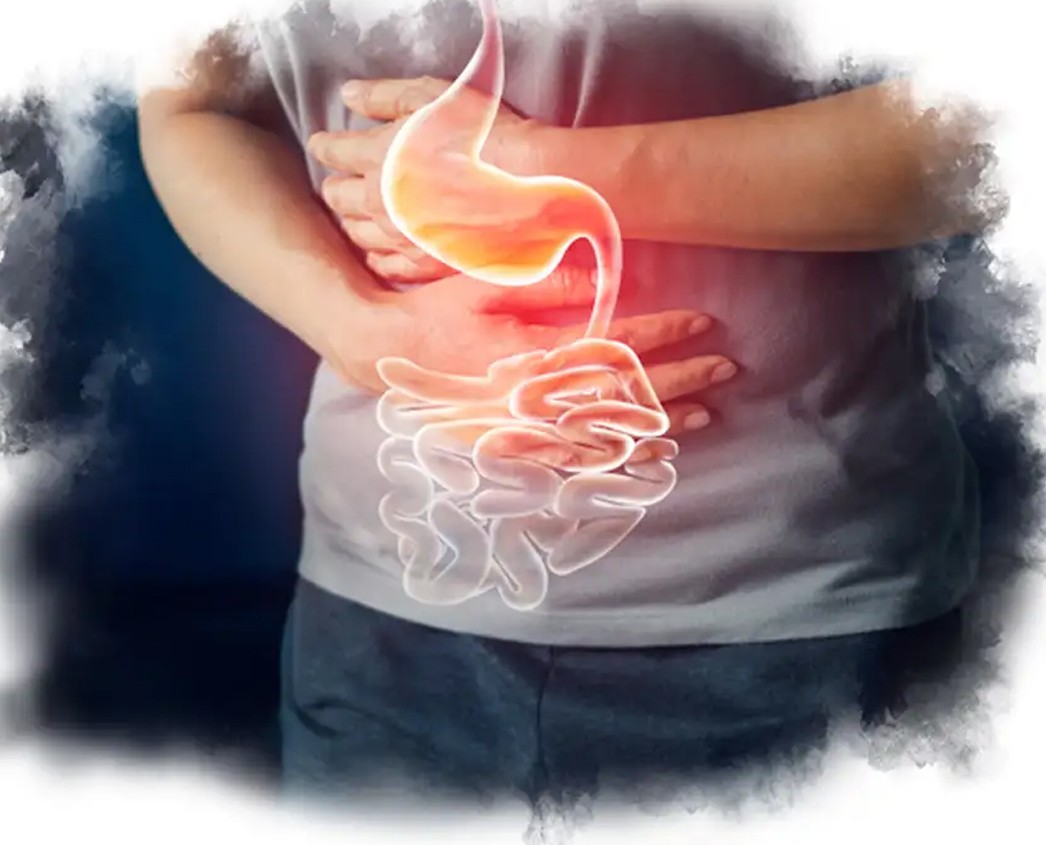Unveiling Abdominal Pain: A Comprehensive Exploration through TCM and Conventional Medicine
Introduction:
Abdominal pain is a prevalent and often debilitating symptom that can arise from various causes. This article delves into the understanding of abdominal pain from both Traditional Chinese Medicine (TCM) and conventional medicine perspectives. We will explore the diverse causes, syndromes, and classifications, offering insights into natural health approaches and TCM solutions, including the use of herbs.
Abdominal Pain in Traditional Chinese Medicine (TCM):Causes in TCM:
In TCM, abdominal pain is seen as a manifestation of imbalances in the body's vital energy, Qi, and the harmonious flow of blood. Common causes include:
- Qi Stagnation: Blockages or disruptions in the smooth flow of Qi along meridians can lead to abdominal discomfort.
- Blood Stasis: Poor blood circulation may result in sharp or stabbing abdominal pain.
- Cold or Heat Imbalances: TCM considers the body's internal balance of hot and cold energies. Abdominal pain may arise from excess cold or heat.
Syndromes or Classifications in TCM:
- Liver Qi Stagnation: Characterized by distending pain, often triggered by emotional stress.
- Blood Stasis in the Abdomen: Sharp, fixed pain associated with poor circulation.
- Cold in the Stomach and Intestines: Pain aggravated by cold weather or relieved by warmth.
- Damp-Heat Accumulation: Pain with a sensation of heaviness, often accompanied by digestive issues.
TCM Solutions:
- Acupuncture: Stimulates specific points to restore the balance of Qi and blood.
- Herbal Formulations: Customized blends addressing the specific TCM syndrome.
Herbal Remedies in TCM:
- Chuan Xiong (Ligusticum wallichii): Used for Qi and blood circulation, relieving pain.
- Dang Gui (Angelica sinensis): Addresses blood stasis and nourishes the blood.
In Person With Heshoutang Natural Health Members
With Heshoutang Natural Health Online Members
Fill Out the Questionnaire by yourself
Abdominal Pain in Conventional Medicine:Causes in Conventional Medicine:
- Gastrointestinal Disorders: Conditions like gastritis, ulcers, and IBS.
- Reproductive Issues: Menstrual cramps, endometriosis, or ovarian cysts.
- Urinary Tract Issues: Infections, stones, or structural abnormalities.
Syndromes or Classifications in Conventional Medicine:
- Functional Abdominal Pain Syndrome (FAPS): Chronic abdominal pain without an identifiable cause.
- Inflammatory Bowel Disease (IBD): Chronic inflammation of the digestive tract.
- Irritable Bowel Syndrome (IBS): Characterized by abdominal pain, bloating, and changes in bowel habits.
Conventional Solutions:
- Medications: Antacids, pain relievers, and anti-inflammatory drugs.
- Diagnostic Tests: Imaging studies, blood tests, and endoscopic procedures.
- Surgical Intervention: When structural issues are identified.
Holistic and Natural Approaches:Dietary and Lifestyle Recommendations:
- Anti-Inflammatory Diet: Emphasizes whole foods, fruits, vegetables, and omega-3 fatty acids.
- Probiotics: Supports gut health and aids digestion.
TCM and Natural Health Synergy:
- Mind-Body Practices: Tai Chi and Qigong promote overall well-being and balance Qi.
- Herbal Supplements:
- Peppermint Oil: Relieves gastrointestinal spasms.
- Ginger: Aids digestion and reduces inflammation.
Herbal Tea Recipe:
Ginger and Peppermint Tea:
- Ingredients: Fresh ginger, peppermint leaves, honey (optional).
- Preparation: Boil ginger slices and peppermint leaves in water for 10 minutes. Strain, add honey if desired, and enjoy.
Conclusion:
The approach to abdominal pain can be enriched by integrating both TCM and conventional medicine perspectives. Natural health solutions and herbal remedies from TCM, along with dietary and lifestyle modifications, provide a holistic approach to managing abdominal pain. It's crucial for individuals experiencing persistent or severe abdominal pain to consult healthcare professionals from both TCM and conventional medicine for a comprehensive and personalized approach to their well-being.
When you subscribe to the blog, we will send you an e-mail when there are new updates on the site so you wouldn't miss them.














Comments